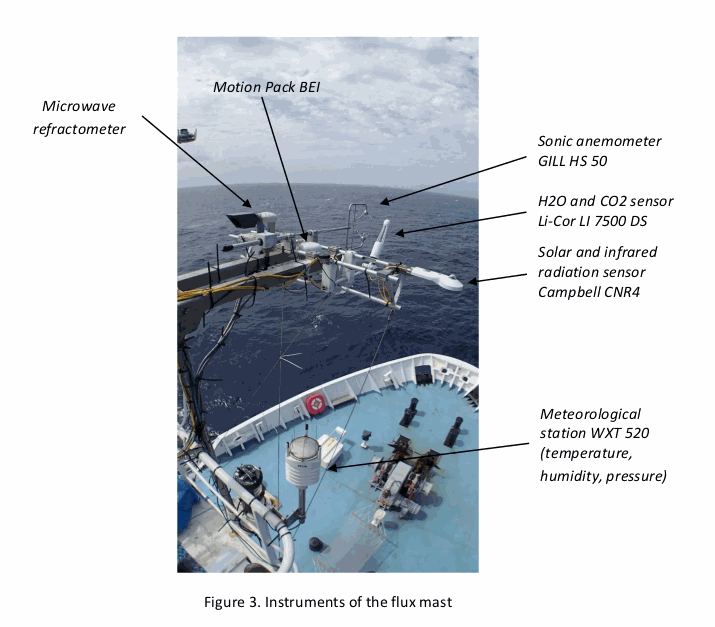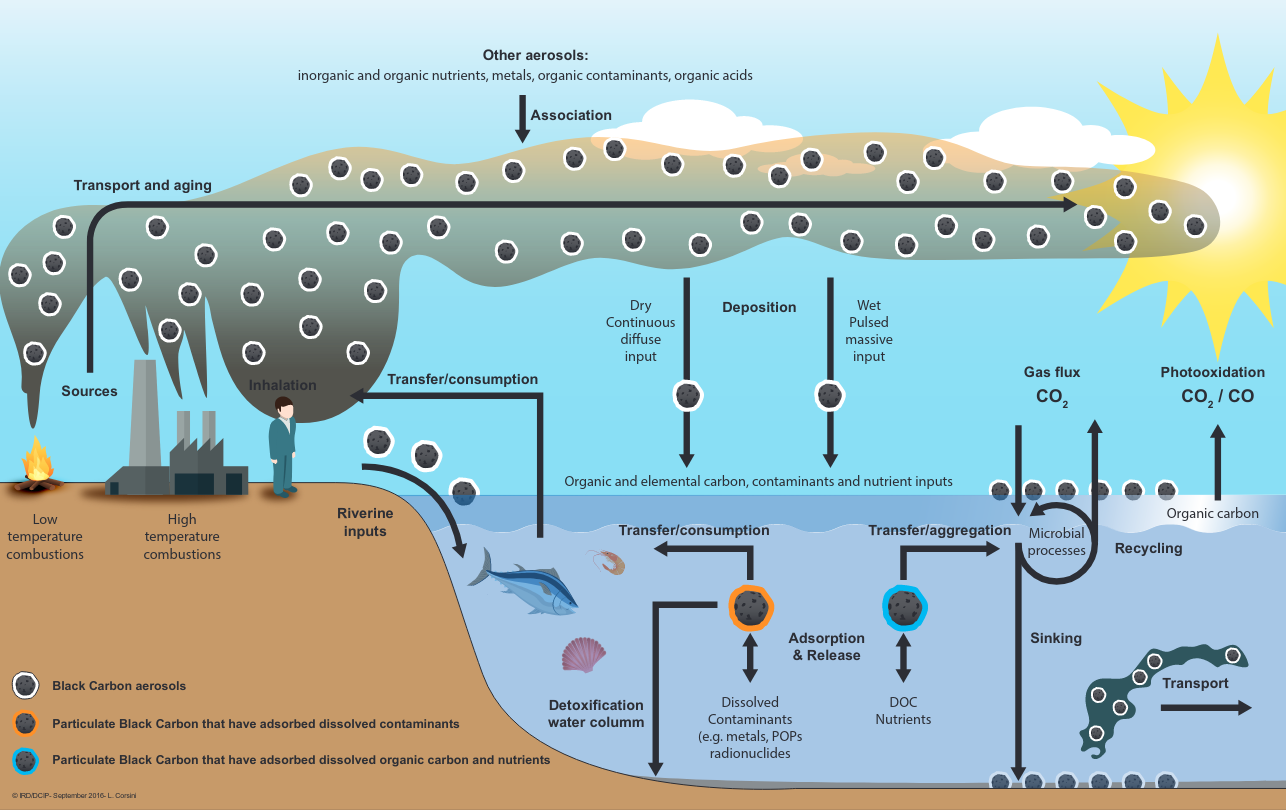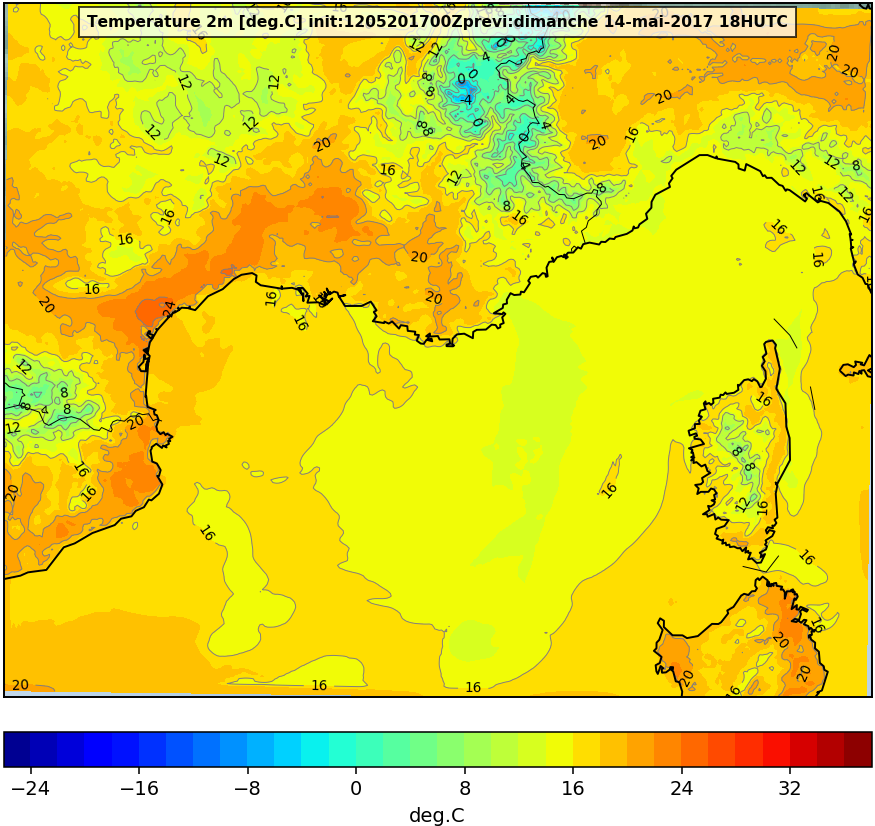atmosphere
Type of resources
Available actions
Topics
INSPIRE themes
Keywords
Contact for the resource
Provided by
Formats
Representation types
Update frequencies
status
Scale
-

As part of the EUREC4A-OA project (H. Bellenger, S. Speich, LMD), which is the French oceanographic component of the larger EUREC4A field experiments, the “flux mast” national instrument was installed on the Reseach Vessel R/V Atalante from Genavir. The flux mast holds instruments that measure atmospheric turbulence and meteorological variables. The collected data are used to estimate the turbulent fluxes of momentum and heat at the air-sea interface. Specifically, the flux mast instruments measure air pressure, air temperature, humidity, air refraction index, H2O, the three components of the wind vector, and the upward and downward solar and infrared radiation fluxes. The fluxes calculated are the latent and sensible heat fluxes, and the friction velocity. DOI : https://www.seanoe.org/data/00661/77341/
-

The scientific objectives of the project SOOT-SEA the objectives of this study in northern Vietnam are to determine: - (1) the composition of fine particles in order to assess their health, climatic and environmental impacts, - (2) their origin, both geographical and sectoral, - (3) atmospheric deposition fluxes, - (4) fluvial fluxes of black carbon towards the ocean. Study carried out during a complete annual cycle (weekly frequency). Aerosols were sampled for 24 hours using a large volume PM2.5 collector. Samples collected on quartz filters were analyzed to determine the concentrations of: - organic carbon (OC) and - elemental carbon (EC), - organic nitrogen (ON), - metals (Hg, Al, Ti, V, Cr, Mn, Fe, Co , Ni, Cu, Zn, As, Ag, Cd, Sn, Sb, Cs, Ce, Nd, Pb, U), - Pb isotopes, - PAHs, sugars, ions, organic acids, humic-like substances (HULIS). The oxidizing potential (OP) of these particles was determined using the DTT (Dithiotreithol) method. Citation: Mari, X., Uzu, G., Jaffrezo, J.-L., Dominutti, P., Chifflet, S., Tedetti, M., Guigue, C., Guyomarc’h , L., Heimburger, L.-E., & Raimbault, P. (2017). SOOT-SEA : Impact of Black Carbon in South East Asia [Data set]. MIO UMR 7294 CNRS. https://doi.org/10.34930/858FCE6B-A882-43C0-B5D0-81E80EFA7A1C
-

Sortie du modèle atmosphérique WRF et Meso-NH
 OSU Pytheas - Data Catalog
OSU Pytheas - Data Catalog